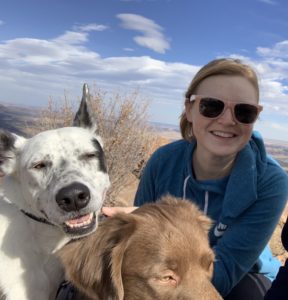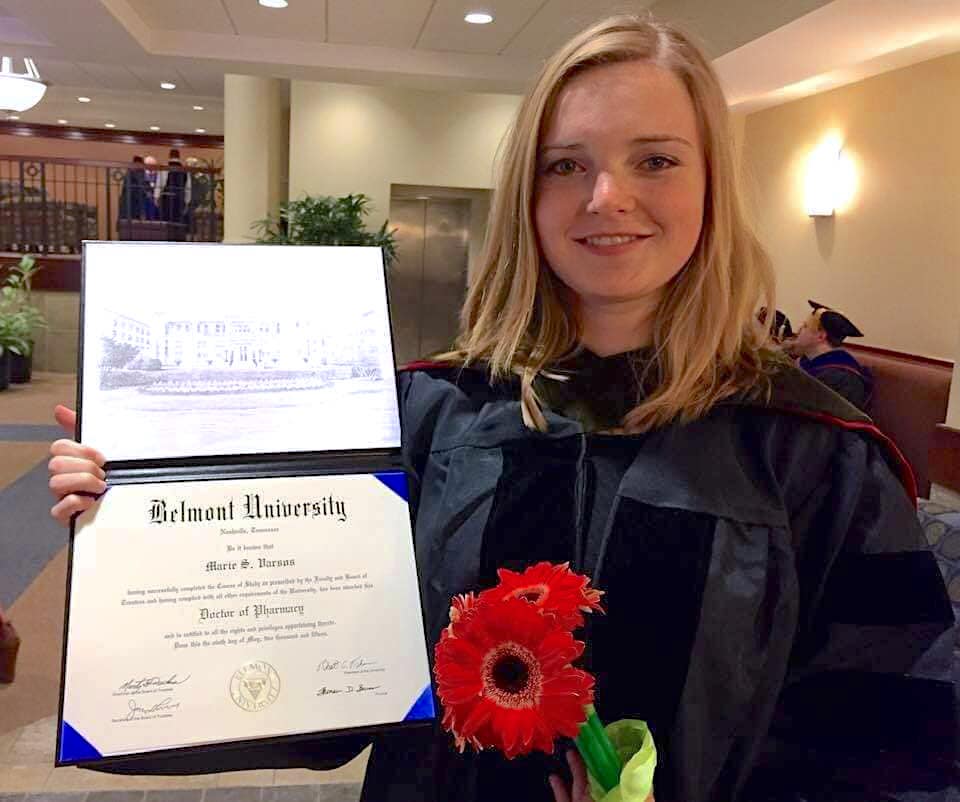
Marie met Shaun Varsos when they both worked at a movie theater in Bellevue. That movie theater later flooded and was turned into a shooting range where the two would go shoot guns together.
That anecdote took on a tragic irony when Marie’s brother, Alex Youn, got a phone call the morning of April 12.
“Shaun had shot Marie and my mother,” he says. “And at the time I didn’t know if they were alive or dead.”
Shaun had gone to Marie’s mom’s house in Lebanon and confronted Marie as she was leaving for work.
Marie fought back, shooting Shaun three times and shouting for the neighbors to stay inside, before she and her mom, Deborah Sisco, were both killed.
Shaun later died of gunshot wounds — including one that was self-inflicted — in Nashville.
“I know that people may sort of say, well, did she have a gun? Was she trained?” Alex says. “She did and she was. And that still did not save her.”
Marie had alerted law enforcement and the courts that her estranged husband had threatened to shoot and kill her. A month later, he did.
Her case illustrates a gaping hole in Tennessee’s law that allows guns to remain in dangerous hands.
So what could have saved Marie and Deborah? Alex has spent the weeks since their deaths searching for an answer. That search led him to discover loopholes in Tennessee’s justice system, and ways the system fails to protect victims of domestic violence.
 Courtesy of Alex Youn
Courtesy of Alex Youn Family photos of Alex; his mom, Deborah, and his sister, Marie. Left, Deborah holds Alex when he was a child. Top right, Alex and Marie play together. Bottom right, Alex holds Marie as a newborn.
No enforcement leads to deadly consequences
Records reviewed by WPLN News reveal Marie’s case showed all the warning signs of becoming lethal.
A month before the shooting, Shaun strangled Marie until she passed out. When she regained consciousness, he held a gun to her head, vowing to shoot her and kill himself. Domestic violence experts say these are the two biggest red flags.
And Marie did everything domestic violence victims can do in the aftermath. She went to the police, filed an order of protection against Shaun and criminal charges for assault with a deadly weapon.
On a lethality assessment with the Metro Nashville Police Department, Marie indicated she was afraid Shaun would carry out his plan, and kill her and her family. She also told law enforcement and the courts that Shaun had a gun, and she thought he was willing to use it.
Shaun’s bond agreement and the temporary order of protection both dictated that he should not have access to guns. But when WPLN News tried to nail down which of the many agencies involved in the case oversaw making sure Shaun gave up his guns, none of them knew the answer.
 Courtesy of Alex Youn
Courtesy of Alex Youn Marie was returning her dogs to the house she and Shaun once shared when he strangled her and threatened to kill her.
“Ultimately, where the enforcement lies in actually removing a weapon is, I think, up for debate,” says Becky Bullard with Nashville’s Office of Family Safety.
She says what happened to Marie is illustrative of a massive systemic failure in Tennessee.
“It’s very much a huge gaping hole of issues,” Bullard says. “And we are not waiting for a homicide to happen. They have happened and they are happening — they continue to happen — with individuals who should never have a weapon.”
From 2018 to 2020 in Nashville, more than a third of the perpetrators in domestic violence homicides should not have had access to a gun.
Part of the problem is that in Tennessee someone who has been ordered to turn in their guns can give them to a licensed firearms dealer, law enforcement or — the most potentially dangerous option — a third party like a friend or a relative.
In Shaun’s case, he said he was going to give his guns to his dad, but there is no documentation of that ever happening.
Parallels to a previous shooting
“We’re saying we trust you to give this gun to someone, and not to steal it back or have access to it whenever you want or for that third party to just give it back to them,” Bullard says.
Bullard uses the example of the Waffle House shooting, three years ago — the shooter had his guns dispossessed for a prior arrest under a similar law in Illinois. He gave his guns to his dad, yet still one of those guns was used in the shooting that killed four people.
Bullard and other city and criminal justice leaders are part of a task force that has been working to improve Tennessee’s dispossession process for years.
But John Harris of the Tennessee Firearms Association argues law enforcement should not proactively ensure someone like Shaun didn’t have access to guns.
“At what point does the state tax the population and incur cost and expenses to change the probabilities that criminal activity will occur in the future?” Harris asks. “That’s the dynamic that we’re talking about.”
He says this is not like the science fiction film “Minority Report,” where police can use technology to predict who will commit a crime before it happens. Instead, bond conditions are really enforced only if someone gets caught breaking them.
“I just don’t know that there is a perfect mechanism to protect someone in her situation,” Harris says.
 Courtesy of Alex Youn
Courtesy of Alex Youn Marie graduated from Belmont University with a doctorate in pharmacy.
He says even if the state had done everything in its power to take Shaun’s guns, determined abusers find a way to carry out their crime regardless.
Marie’s brother, Alex, knows that is true.
“At the end of the day Shaun was going to kill Marie no matter what,” he says. “I think there are things in place that could have made that harder for him, though.”
He says if his mom and sister were still alive, they would try and find a way to fight for changes so this wouldn’t happen to anyone else.

